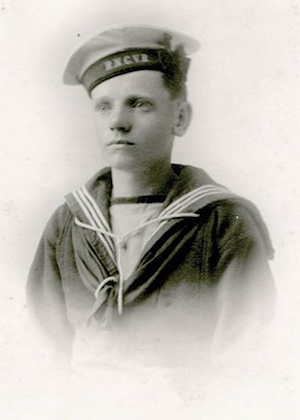By: Tony Davis
When Sara Underwood was a young girl growing up in England, she remembers getting a tiny plaster money box which looked like a cottage.
“These were supposed to represent the cottages Dr. Barnardo’s orphans lived in.â€
Dr. Barnardo’s Homes was one of the organizations which brought orphans to Canada. It was a British charity founded to care for vulnerable children. When Underwood had extra allowance, she would put it inside the miniature cottage and bring it to school where a record was kept.
“We thought we were helping the little orphans, but in fact a lot of these organizations were shipping these children out of England to Canada and Australia. When you hear the stories, some of them are awful,†she said.
Between 1869 and 1948, over 100,000 children were brought to Canada from England and placed with families across the country.
Underwood noticed there wasn’t much mention of British Home Children in Island history. “Many Islanders had no idea children were sent to the Island at all,†she said.
Now, she is launching a book called Awful Kind: The Story of the Middlemore Children of Prince Edward Island on Sept. 28 at 5:30 p.m. in the Carriage House at Beaconsfield in Charlottetown.
Underwood read an article in Island Magazine a few years ago. It was just a couple pages identifying about 150 kids sent from England to P.E.I. As she read the article over she thought, “Okay I’ll start with that list of 150 and go from there.â€
Quickly she found out the Middlemore Homes in Birmingham gave records to Canada in the 1980’s about children sent here and it was all on microfilm in a library.
“The records were not just records pertaining to the children. It was individual records of children sent to P.E.I., Nova Scotia and New Brunswick, but they were all mixed together,†she said.
Awful Kind traces the lives of about 190 children sent by Middlemore Homes from Birmingham, England to P.E.I. between 1893 and 1930 using reports by the Middlemore representatives, admission documents, applications and letters from Islanders as well as correspondence from the children to Middlemore.
To find the children sent to P.E.I., Underwood and her husband eye balled the 5000 Middlemore records for any Island reference. At one-point they both stayed on the library microfiche machines reading for eight hours. The machine would scan what Underwood saw and produce an image file she could load on her computer.
Sara Underwood, Author of Awful Kind: The Story of the Middlemore Children of Prince Edward Island observes picture of two orphans sent to the Island at her office at Holland College where she works as Marketing, Media & Communications officer.
“I took the images and put them in Photoshop and changed the levels, so I could see the writing.â€
It took Underwood three years to compile all the information of nearly 200 children.
“Some of the stories are so incredibly sad they live with you afterwards,†she said.
“When the children were brought over they were brought over as labourer’s and not given to people who wanted to adopt them,†she said. “There was little done to ensure the homes the children were going to were safe.†Underwood said there would be an add in the paper asking anyone if they were looking for a child and in many cases, the applications were not filled out.
“They weren’t brought over to be taken into families and treated as family members, they were brought here to be labourers and servants.â€
The children sent to the Island were often orphans in desperate situations. “I’ve got a record of one little girl whose mother tried to sell her for a pint of beer.â€
Underwood is often asked why she would want to write about this. People tell her children were treated differently in the ‘old days’.
“That’s true, but when you got adults of that time reporting on the children saying this child has been beaten, starved, poorly clothed, that’s not our judgement from our perspective. It’s the adults of that time.â€
Underwood said that when the children did labour they were supposed to be compensated for their work.. The children were given cloths for a year, which they would outgrow leaving some of them working barefoot.
“When I talk to people from the Island they don’t know about it or they heard about it and want to know more,†she said.
When Awful Kind launches on September 28, it will be Canada’s first national British Home Child Day. Underwood hopes people will take the opportunity to learn more about the history of British Home Children. The public and descendants of home children are encouraged to attend her book launch.
For more information, visit: peihomechildren.com
Event Info:
Awful Kind: The Story of the Middlemore Children of Prince Edward Island
September 28
5:30 p.m.
Carriage House at Beaconsfield in Charlottetown.
